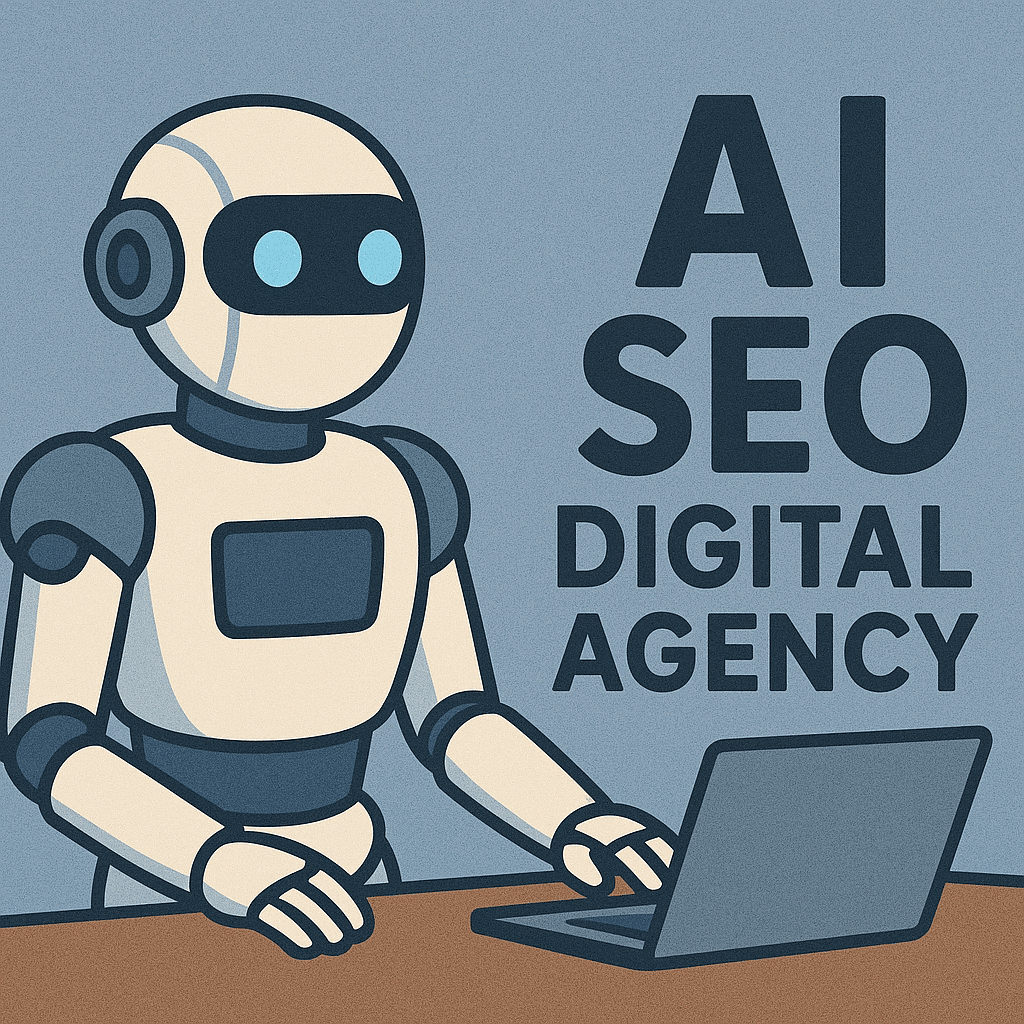What Are Google’s AI Overviews and Why Should You Be Concerned?
Google’s AI Overviews, part of its Search Generative Experience (SGE), are fundamentally altering the way users interact with search engine results pages (SERPs). These AI-generated summaries appear prominently at the top of the results, presenting synthesized answers compiled from various authoritative sources. For the average search user, this offers a faster, more seamless experience. However, for businesses—particularly those that rely heavily on organic traffic—this shift poses significant challenges.
Previously, being ranked first on Google nearly guaranteed substantial traffic. Today, even the top-ranked listings are being overshadowed by AI Overviews. Users often find the information they need within the AI snippet itself, never scrolling further to click on organic links. The result is a growing number of zero-click searches, where searchers get their answers without ever leaving Google’s platform. This trend is having a profound impact on businesses, especially those operating in highly competitive environments like Toronto.
Real Consequences: How Toronto Businesses Are Losing Clicks
Toronto’s diverse and competitive business environment means that companies must continuously fight for visibility. For many local businesses, from legal firms and medical practices to real estate agents and service providers, visibility on Google has been the primary source of inbound traffic and leads. However, the emergence of AI Overviews has disrupted that dynamic.
Businesses that have spent years building SEO authority are now discovering that their traffic is stagnating or even declining. They’re still ranking, their content is still strong, but the clicks are no longer coming. Instead, users are engaging with the AI-generated responses. This loss of traffic translates into fewer inquiries, fewer leads, and ultimately, lower revenue. In a city where digital marketing competition is fierce, any drop in visibility can quickly escalate into a critical business issue.
The Technical Side: How AI Overviews Work
Google’s AI Overviews operate by leveraging advanced machine learning and natural language processing to scan and interpret content from top-ranking web pages. The system then condenses the most relevant information into a brief summary that directly addresses the user’s query. These summaries are designed to be comprehensive enough to eliminate the need for further navigation.
The problem lies in attribution and engagement. Often, these overviews don’t cite sources in a meaningful way, or they reference a brand without linking back to it. Even when a link is included, its visibility and click-through potential are significantly lower than that of traditional search listings. Moreover, AI-generated answers are not influenced solely by ranking positions; they depend on how well the content aligns with Google’s content interpretation models, which adds a new layer of complexity for SEO professionals.
Why This Matters More in Competitive Niches
The impact of AI Overviews is not evenly distributed across industries. Sectors such as healthcare, law, finance, home services, and high-ticket e-commerce are among the most affected. These fields tend to produce content that is highly informative and keyword-rich—ideal material for AI to summarize.
Take, for instance, a dental clinic in Toronto that ranks highly for “best cosmetic dentist in Toronto.” The AI Overview now pulls together various snippets from different clinics and health websites to provide a synthesized response. The result? The clinic’s original content may be used to generate the overview, but the clinic itself receives no traffic from it. This leads to a paradox where the content contributes to Google’s summary but fails to benefit the business that created it.
SEO in 2025: What Still Works and What Doesn’t
In 2025, the rules of SEO are evolving. While foundational elements like backlinks, content quality, and site speed still matter, they are no longer sufficient on their own. To compete in the age of AI Overviews, businesses need to embrace new tactics that align with how content is evaluated and displayed.
One approach that remains highly effective is the creation of topical authority. Instead of isolated blog posts, businesses should focus on building comprehensive topic clusters that cover every aspect of a subject. For example, a law firm might develop an entire content hub around “personal injury law in Toronto,” with subpages targeting FAQs, case studies, and legal definitions. This structured approach helps Google understand the depth and reliability of your content.
Another strategy is to optimize for featured snippets and voice search. This involves structuring your content with clear, concise answers to common questions, using headers, bullet points, and schema markup where appropriate. Content needs to be formatted in a way that not only appeals to human readers but also makes it easier for AI systems to extract and present information.
Our Toronto SEO Approach to AI Overviews
As a leading SEO company in Toronto, we’ve adapted our methodology to reflect these new realities. Our team understands that visibility in the age of AI requires more than just ranking—it requires strategic content engineering.
We begin by conducting a comprehensive audit of your current content to identify how and where it may be appearing in AI Overviews. From there, we restructure and optimize key pieces to increase the likelihood of citation and visibility within those summaries. This includes incorporating structured data, aligning content with conversational query formats, and reinforcing topical authority through internal linking and supporting articles.
We also focus on elevating personal and brand authority. Articles featuring expert insights, authored by professionals with real credentials, perform better in AI-driven environments. In this way, we help businesses humanize their content and establish themselves as trustworthy sources.
Why Internal Linking Matters More Than Ever
Internal linking is a critical component of modern SEO, especially when it comes to helping AI systems understand the relationship between your content pieces. Google uses these internal signals to determine site structure, topic clusters, and the relative importance of each page.
Our approach emphasizes intentional linking between high-authority cornerstone pages and supporting blog content. This not only improves crawlability but also reinforces the relevance of your site as a whole. For example, this article links to foundational pieces such as:
Should You Switch to Google Ads?
Some businesses may consider shifting their marketing budget to paid search in response to declining organic traffic. While pay-per-click (PPC) advertising can provide immediate visibility, it does not replace the long-term value and trust that comes from organic search.
Our article on SEO vs Google Ads in Toronto explores this in depth. In essence, while Google Ads can supplement your traffic strategy, they are significantly more expensive and less sustainable. A balanced approach that includes both PPC and AI-optimized SEO is ideal.
Work With Us: Toronto’s AI-First SEO Agency
Navigating the challenges of AI Overviews requires a partner who understands not only how Google is changing but also how to adapt effectively. Our team at TorontoSEO.com has the experience and expertise to position your business for success in this new era.
We offer services that include AI Overview visibility audits, competitive content strategies, schema implementation, and ongoing performance tracking. Whether you’re a small business or an established brand, we tailor our approach to your unique goals and industry challenges.
Contact us to discuss how we can help your business regain lost traffic and secure long-term growth: TorontoSEO.com Contact
FAQs
1. What are AI Overviews and how do they impact my Toronto business?
AI Overviews are AI-generated answers displayed at the top of Google search results. They reduce user engagement with organic listings, which can significantly decrease website traffic.
2. Can I prevent my content from being used in AI Overviews?
No, but you can structure your content in a way that increases the likelihood of your brand being cited and linked within the Overview.
3. Is SEO still worth it in the AI era?
Absolutely. While the tactics have evolved, SEO remains a powerful tool for building trust, authority, and long-term visibility.
4. Should I invest in Google Ads instead of SEO?
Google Ads can provide short-term traffic but is costlier. A balanced strategy combining AI-optimized SEO and paid search is the most effective approach.
5. How do I know if my traffic is being impacted by AI Overviews?
We offer specialized audits to measure keyword-level traffic shifts, AI summary inclusion, and overall SERP performance, helping you identify and respond to visibility loss.
Get in touch to begin adapting your SEO strategy for the future.


